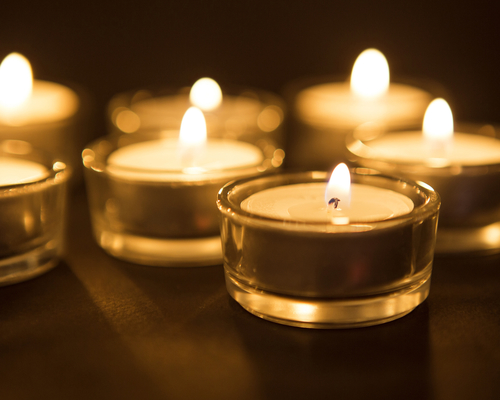Again, we find ourselves as a nation at a terrible pass with an unspeakable act of violence in our midst. We’ve mourned previously when our babies were killed at Newtown and when the blood of our teens spilled at Parkland; this weekend, it was our grandparents. The victims of the Tree of Life Synagogue shooting ranged in age from 59 to 97. Two victims were developmentally disabled brothers; one was a doctor who was among the first to treat AIDS patients; one was a rabbi; one a dentist; another a retired accountant; another a teacher; a married couple in their 80s.
The shooting in Pittsburgh’s Squirrel Hill neighborhood killed 11 and wounded 6 in a house of worship. Sadly, it is not the first time violence met worshipers. Last year, 26 worshipers were killed at a Sunday service at a Texas church. In 2015, nine people – several elderly worshipers among them – were killed in the Emmanuel African Methodist Episcopal church in Charleston, South Carolina. In 2012 , 6 worshipers were killed at a Sikh Temple in Oak Creek, Wisconsin.
Hatred and human intolerance was at the root of many of these shootings. This recent killer came with an intent to “kill all the Jews,” as he told police during the shooting. And in sharp contrast to this hatred was the heroism of the first responders, four of whom were wounded while trying to protect the congregants. And within 24-hours of the shooting. a fundraiser by Muslims raised more than $75,000 for the victims. In the days to come, we will see more coming together, more acts of grace and human goodness in response to this tragic event.
Human-triggered disasters are particularly difficult to cope with and recover from. The quiet neighborhood of Squirrel Hill – the home of Mr. Rogers – has had its peace shattered. Our hearts go out to the people in the community, who suffered grievous losses and who face a difficult recovery. To glimpse what this recovery entails, see Seth J. Gillihan’s article 21 Common Reactions to Trauma in Psychology Today.
We are also updating and re-posting response and recovery advice that we’ve posted previously. And, sadly, all too often:
While everyone is disturbed by such a sudden and terrible set of events, some may feel and react to the news more intensely than others. Reactions may be exacerbated as stories emerge about the horrific attacks and we learn more about the details of the violence and the personal stories of victims and their families. As memorials occur, we are exposed to the grief and raw reactions of survivors and grieving families. Events become more personal. Some of the people for whom this might trigger a heightened level of grief, stress, or anxiety include:
People who were involved in the event – Survivors, employees, family members and friends of the deceased and survivors. First responders, health care professionals, fire, police and EMTs who have had direct relation to the event or to providing care and support for victims and their families.
People with a connection to the events – This would encompass members of the Tree of Life Synagogue, the Squirrel Hill and the greater Pittsburgh community. It would also encompass the Jewish communities throughout the nation.
People who have been a victim of violence themselves – This might encompass people who were prior victims of shootings, assault or other violence, or people who lost loved ones to targeted or random violence. The events might rekindle memories, grief, loss, fear and heightened anxiety.
People who suffer from Post Traumatic Stress Disorder – This might include survivors of other shootings, veterans, victims of 9/11 and many others who experienced trauma and are not able to get beyond it. The events might trigger heightened memories, fear, anxiety, anger, stress, or disruption of eating or sleeping habits, among other things.
Children and young people. Violent events can be particularly frightening to children. The sudden and random nature of events may be terribly upsetting and threatening to a child’s sense of security. Some children may be intensely fearful of their own safety or the safety of loved ones.
Responding to events
Be sensitive to others and how they experience events. People handle stress and grief differently, and we don’t always know what experiences others have had that might intensify a reaction. While some may hear such news and move on, others need time to process and react. Don’t assume everyone feels things the same way that you do – be sensitive to those around you and let them express their feelings.
Limit exposure to gruesome details in the news. The 24-hour nature of social media and cable news mean that we can be bombarded with nonstop news and disturbing images of a disastrous event. This continual exposure can exacerbate anxiety, fear and grief.
Take positive action. When violent events occur, it can shake our faith and trust in our fellow man. Counter these feeling by spending time with family and friends. It can also help to do something to reduce the feelings of helplessness that many experience in the face of such events: Help others. Give blood. Organize or take part in a memorial activity. Write letters. Make a donation. Volunteer.
Consider counseling. If you or somebody else is having a particularly hard time coping with these events, counseling with a professional may be in order. Signs that you or a loved one may need help getting past this might include sleeplessness, heightened anxiety or phobias, and preoccupation with details of events.
We would add one more suggestion: Say yes to love and no to hate. Be the change you want to see.
We close with advice from a former Squirrel Hill resident:

